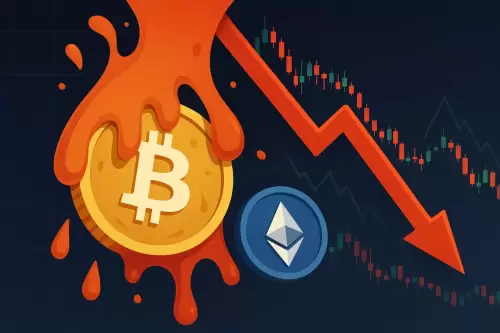 |
|
 |
|
 |
|
 |
|
 |
|
 |
|
 |
|
 |
|
 |
|
 |
|
 |
|
 |
|
 |
|
 |
|
 |
|
Cryptocurrency News Articles
Trump's Meme Coin Dinner, Foreign Influence, and Crypto Regulation: A New York Perspective
Jun 26, 2025 at 01:12 pm
Analyzing the intersection of Trump's crypto ventures, foreign influence, and the evolving landscape of cryptocurrency regulation. Is this the future of finance, or a recipe for disaster?

Yo, what's the deal with Trump, meme coins, foreign money, and crypto regulation? It's a wild mix, and we're diving in. Trump's cozying up to crypto raises eyebrows, especially when foreign players are involved. And the feds are trying to figure out how to wrangle this beast.
Trump's Crypto Dinner: Who Paid for the Meal?
So, Trump had this fancy dinner for the big spenders of his $TRUMP meme coin. Senator Merkley's all up in arms, asking if any foreign agents were schmoozing at the table. Turns out, Tron founder Justin Sun, who's got deep pockets, was there. Attorney General Bondi dodged the question like a pro, but the point is clear: foreign influence is a concern when big money's involved.
Merkley wasn't shy, accusing Trump of being influenced by those who attended the dinner and invested in his personal product. Bondi fired back, defending Trump's efforts to protect American interests. It's a classic D.C. showdown, but with a crypto twist.
World Liberty Financial: A Family Affair?
Trump's not just playing with meme coins. His family's got a crypto venture called World Liberty Financial. They even rolled out a stablecoin that was used in a huge $2 billion deal with Binance. Critics are whispering about ethical issues and improper foreign influence, especially since Eric Trump was hobnobbing at an Abu Dhabi crypto conference right before Trump's UAE visit. Is this just smart business, or is something fishy going on?
Crypto Regulation: The GENIUS Act and Potential Bailouts
Speaking of regulation, there's this thing called the GENIUS Act. It's supposed to make stablecoins safer and more user-friendly. But some folks are worried it's setting the stage for a massive crypto bailout. The idea is to create a regulatory framework that allows stablecoins to be used in everyday transactions, but critics argue it messes with bankruptcy law.
Stablecoins, like Tether, are supposed to be pegged to the U.S. dollar. But to maintain that value, they need reserves. And those reserves aren't always just cold, hard cash. If a stablecoin goes belly up, taxpayers could be on the hook. Georgetown law professor Adam Levitin says the GENIUS Act doesn't do enough to protect coin owners and could lead to a government bailout.
My Two Satoshis
Look, Trump's dive into crypto is a mixed bag. On one hand, it could bring more innovation and investment. On the other, it opens the door to potential corruption and financial instability. The foreign influence angle is especially troubling. And the idea of taxpayers bailing out crypto investors? Fuggedaboutit!
I think the feds need to get their act together and create clear, strong regulations. We need to protect consumers and prevent shady actors from using crypto to launder money or influence elections. Otherwise, this whole thing could blow up in our faces.
The Bottom Line
So, what's the takeaway? Trump's crypto ventures are raising eyebrows, and for good reason. The potential for foreign influence and the risks of unregulated stablecoins are real. It's a high-stakes game, and we need to be careful not to get played. But hey, maybe we'll all be paying for pizza with TrumpCoins in a few years. Who knows? Just don't bet the house on it.
Disclaimer:info@kdj.com
The information provided is not trading advice. kdj.com does not assume any responsibility for any investments made based on the information provided in this article. Cryptocurrencies are highly volatile and it is highly recommended that you invest with caution after thorough research!
If you believe that the content used on this website infringes your copyright, please contact us immediately (info@kdj.com) and we will delete it promptly.






























































